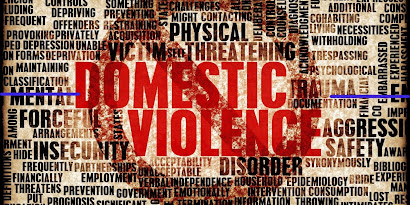Snow, Rain & Heat: Extreme Weather & Domestic Violence
The mission of AVA is
to empower those victimized by abuse and/or violence through Advocacy and
crisis intervention and to raise awareness in the community about the cause,
impact, and prevention of relationship abuse, sexual violence, bullying and
child abuse and neglect.
Snow,
Rain & Heat:
Extreme
Weather & Domestic Violence
Loretta Grieve, LSW for Humboldt AVA
Christmas carols, we all have our favorites; I’m Dreaming of a White Christmas, and Baby It’s Cold Outside are two very popular songs. Folks want to snuggle with their mugs of cocoa and watch the snowfall. This past December in Humboldt County and in several areas of Nevada we got our wish for snowfall and a white Christmas. Few people realize that extreme weather is also linked to domestic violence which makes this a timely topic to discuss. Statistics and studies show that the rates of domestic violence increase during adverse weather, including cold snaps, severe storms, and even simple rainstorms.
Domestic violence, also called intimate partner violence, (IPV), domestic abuse or relationship abuse, is a pattern of behaviors used by one partner to maintain power and control over another partner in an intimate relationship. This behavior can come in many forms including physical assault (being slapped, punched, choked, kicked), emotional abuse, intimidation and isolation, victim blaming, leveraging children, economic abuse, coercion and verbal threats. Domestic violence experts believe that bad weather could increase family abuse for a number of reasons:
● Abusers
and their families are more likely to all
be in the home at the same time
● Abusers
may be abusing substances while in the home
● Both
abusers and victims may not be able to leave the home when the abuser’s temper
flares
● There
is a less likely chance that visitors will be in the home
● Abusers
may feel cooped up or get “cabin fever”
● Abuse
victims may have more trouble reaching resources or escaping violence
According to the Rape, Assault, and Incest National Network, their sexual assault hotline becomes 20 percent busier in the cold winter months – and significantly busier during snow and winter weather. Several studies have found that crime rates increase dramatically during extremely hot and cold weather, when tempers may be shorter. Being cooped up together with little to no relief can cause tempers to flare and behaviors to go unchecked among the best of us. Cranky kids tired of being bored and stuck indoors does not help the situation. People with coping mechanisms include leaving the house to cool off/calm down are less likely to do so when the temperature is freezing or too hot outside. Local law enforcement has used the term “cabin fever” as an explanation for why they get so many domestic calls from families who are “cooped up” and tend to get on each other’s nerves. When there is an abusive person in the family, and they are forced to be together for longer periods of time, there is an increased potential for violence.
Domestic violence advocates encourage potential victims to develop a
safety plan. Whom can you call? Where can you go? Can you put some money away? Do you have copies of identification for yourself, i.e. your social security card, children’s birth certificates (Ashford, Lecroy, Williams 2018). What should potential abuse victims do if they fear they may be assaulted by a partner with “cabin fever”? If you aren’t able to leave the house or find safe transportation, you should call the local authorities or dial 911 if you feel you are in danger:
For help, call the National Domestic Violence Hotline at (800) 799-SAFE (7233). Free. Confidential. 24/7.
RAINN (Rape,Abue, and Incest National Network) 24/7 online hotline addressing anything related to sexual violence 800-656-HOPE (4673)
For more information please call or
contact Advocates for Victims of Abuse (call or text) (702) 343-2439, (775)
722-4564 or (775) 304-6489 or email humboldtava@sbcglobal,net or visit our
website at www.humboldtava.com and find us on social media.
1. Ashford,
Jose, LeCroy, Craig, Williams, Lela Human
Behavior in the Social Environment, Boston, MA Cengage Learning, 2018



Thanks for shared that blog with us. If anyone here searching Therapy Edmonton then visit Edmonton Counselling Servcies.
ReplyDeleteVisit our website and provide all the details by filling up the order form. If you want customized assignment solutions, pay to get homework done you can talk to our support team and mention your requirements.
ReplyDeleteYou've provided quite good information here. This is fantastic since it expands our knowledge and is also beneficial to us. snow removal company Thank you for sharing this piece of writing.
ReplyDeleteThis comment has been removed by the author.
ReplyDeleteConventional marital therapy has the couple sit across from one other and relive previous wounds and sorrows, which often leads to more arguing. Yet as more and more people turn to the web for answers, a new kind of marital support is gaining ground online marriage counseling in cincinnati.
ReplyDelete